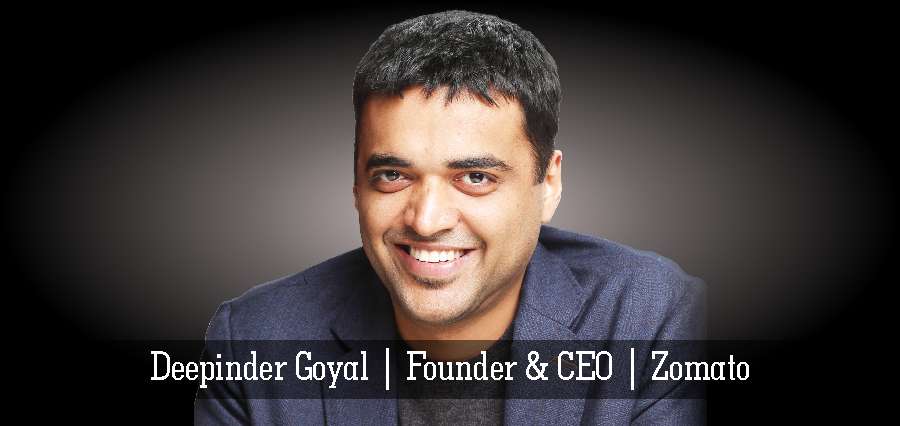The online food ordering culture is booming in India, bringing variations in the way traditional restaurants worked. Not long ago, looking for your favorite cuisines and ordering food online seemed like a thing of the distant future. But now, online food ordering has become a normal weekday activity, especially with the working community in metro cities, youth living away from home and looking for easy food options, and housewives wanting a break from cooking.
Owing to fierce competition and vast market, the space is coming up with a lot of innovation catering to customer convenience, satisfaction and retention. Zomato is currently among the top-rated food ordering apps. Zomato is a ‘restaurant search and discovery app’, which provides in-depth information for over 1 million restaurants and enables millions of users every day to decide what & where to eat in over 10,000 cities across 23 countries. In addition, Zomato also allows users to order food online and make online table reservations in selected geographies.
Pioneer behind Zomato
After the turmoil, the food ordering space has witnessed lately, Zomato has became the pioneer in the battlefield. It was established in 2008 under the dynamic leadership of Deepinder Goyal, Founder & CEO at Zomato. Deepinder graduated with an Integrated Masters in Mathematics and Computing from the Indian Institute of Technology, Delhi in 2005.
Prior founding Zomato, Deepinder worked as a management consultant with Bain & Company. It was at Bain that he conceived an idea of an online restaurant information service, after seeing the demand for paper menu cards among his colleagues. He left Bain in 2008 to work full-time on Zomato, and has built a strong, global food tech business based out of India. Since the very beginning, he has also led product development and evolution efforts at Zomato.
Your Digital Assistant in the World of Appetite
Zomato is used by consumers globally to discover, rate, and review restaurants, as well as create their own personal networks of fellow food enthusiasts for trusted recommendations. In addition to restaurant search and discovery, Zomato has expanded its offering to include transactions – Online Ordering, Table Reservations, and a Point-of-Sale system, creating cutting-edge technology to connect restaurant businesses and customers in ways that will revolutionize the restaurant industry.
Zomato has grown to become the largest search and discovery platform dedicated to restaurants across the globe, over the past 8 years. People search for places to eat using Zomato 90 million times every month, and more than 20,000 restaurants have trusted them with helping them grow their business.
Their focus on digitization of discovery, communication, delivery, reservation and restaurant operations overall will help in creating greater dining experiences for users. They also see convergence of these business models in different forms to provide greater value to both merchants as well as the users in the near future. With more and more players entering the marketing, what will set one apart from the other is the overall customer experience and unit economics. All metrics of customer adoption of a product, the frequency of use and the end conversion will be driven by the quality of service a product offers.
Leaning Towards Future
For the past two years, the food tech space has seen a lot of activity from both entrepreneurs and investors. As it is seen a lot of food-tech start-ups mushroom and help grow the market overall over the last couple of years, it is now also great to see an increasing effort on getting the business fundamentals right with more companies and investors largely focused on building the food-tech space in India for the longer term. Zomato too has seen a conscious effort and the biggest strides along three fronts.
Firstly, the rising digital adoption amongst restaurants to help them create great dining experiences. From cloud based POS systems which help restaurants with inventory and menu management, better customer insightsfor using digital platforms to communicate and reach out to their potential customers.
Secondly, to build stronger communication channels between restaurants and users. Convenience services such as online ordering and table reservation have made the whole ordering in or dining out experience as seamless as possible for both – the users, as well as the restaurants.
And thirdly, small scale merchants have a more level playing field today with better access to data, economical marketing channels and digital tools to help improve efficiency. They are now able to focus on their core product offering which are the food and the experiences around that, which they offer to consumers.
Moreover, this sector will see convenience services take more prominence over the coming couple of years. The order online segment for Zomato, for example, is growing at a healthy double digit growth rate month on month; they’re processing over 28,000 orders a day across India and UAE – and this is with only ~3% of their active user base searching for restaurants having placed orders online. Recently, Zomato also launched their order business in the Philippines and are looking to see a significant uptick in the order volumes there as well in the next few months.
Zomato: Catering the Hungry Millennial


